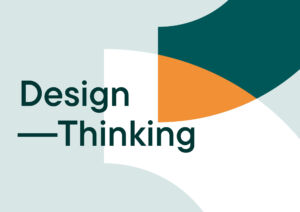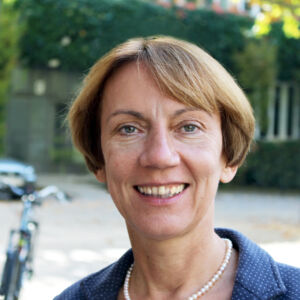Dr. Verena Rossow
Science Communication and Knowledge Transfer, Focus Knowledge Transfer Go to Profile
Knowledge transfer is an essential part of our sustainability research. With our research-based transfer, we address current knowledge needs in civil society, politics, administration and business. Our aim is to promote joint learning processes towards sustainability. We identify target group-specific options for action and provide a sound basis for decision-making.
ISOE has had a transfer strategy since 2021. This strategy is designed to strengthen the social relevance and impact of our research.
In addition to research and teaching, transferring scientific knowledge to politics and society is a core focus of ISOE. The aim of our transfer strategy is to establish a framework for consolidating ISOE's knowledge transfer efforts. Through this, we seek to expand and enhance the impact potential of our research. Our strategy also outlines the measures and areas of action within our knowledge transfer activities.
With our transfer formats, we create learning spaces where we precisely address the knowledge needs of our target groups.
We listen carefully to understand the knowledge needs of our target groups and translate our research results into dialogues with science, civil society, politics and business in a user-friendly way. Diversity and change of perspectives as well as action orientation are characteristic of our innovative offers.
The creative method Design Thinking is a key approach used in the DesignLabs.
Social innovations, along with technical developments, are crucial for a sustainable future. Our DesignLab format promotes collaborative action and encourages participants to develop concrete and feasible solutions for their neighborhood or region. The format is aimed at people who want to further develop their ideas for social innovations based on current scientific findings into practical prototypes. It offers space for a transdisciplinary dialog between people with ideas for change, scientists, and experts. The workshop focuses on experimental learning, creative exchange in small teams, and the application of various innovation methods. Design thinking is a central method in the DesignLab. It is a user-centered approach that aims to develop solutions by gaining a deep understanding of people's needs. The method promotes creative problem-solving in iterative steps: from collecting and developing ideas to practical implementation.
The Frankfurt Sustainability Lab for Schools is a transdisciplinary educational project for students at the upper secondary school level. We developed it in cooperation with the Frankfurt-based educational organization Umweltlernen e.V. The Sustainability Lab teaches students not only knowledge but also the skills to shape sustainable development. The focus is on the steps of understanding, evaluating, and designing, in which students analyze the challenges of unsustainable development and develop new alternatives for action in their respective everyday lives. The project supports the UN World Action Program “Education for Sustainable Development” and the “Sustainable Development Goals”. The practical methods are based on the contents and methods of education for sustainable development (ESD). They promote interdisciplinary learning and offer concrete options for action in everyday life.
The workshop format “Learning Expedition” promotes the transfer of our research results into practice, especially for decision-makers and experts in municipalities and municipal companies as well as federal and state authorities. The aim of the format is to improve the knowledge base and speaking skills of the participants on current topics in their fields of work. The learning expedition format supports the learning process with media and dialogical offers, combining content, changing environments and group interactions. Sensory experiences as well as unfamiliar and challenging situations are integral components that shape the expedition character and increase learning success. Thanks to its modular structure, the format can be adapted to different topics and practical locations.
The workshop provides a basic understanding of transdisciplinary research and its added value. It offers a low-threshold introduction to its methods as well as to its social and scientific impacts and possible transformation paths. The workshop is aimed at all interested parties, but particularly at research funders and (early career) scientists who work in transdisciplinary projects or plan to do so in the future. If requested, ongoing projects can also be included. The workshop will explain the problem and process understanding of transdisciplinary research, present and discuss approaches and methods for designing such research processes, and discuss ways to increase social and scientific impact. In addition, the requirements for reflexivity in transdisciplinary research will be discussed.
On behalf of the Austrian Science Fund FWF, ISOE has offered training courses on transdisciplinary research for researchers.
MoreOur capacity building programs are aimed at federal and state ministries, local authorities, research institutions, municipal companies, public authorities, business associations and companies, among others. Based on the desired competencies and learning objectives, we offer the conception of training, advanced training and continuing education. In addition, we train young scientists and contribute our social-ecological and transdisciplinary knowledge to the interdisciplinary design of study programs and courses as well as to vocational training and continuing education.
In transfer networks, we bring together key players in transformation with the aim of jointly developing practical solutions and sustainable concepts, exchanging ideas, learning from each other and networking.
As an institute for transdisciplinary sustainability research, we work in a network and actively promote dialogue and exchange. In our project consortia, we integrate diverse bodies of knowledge, perspectives and ways of thinking. At the same time, we place great importance on the long-term implementation of our research results: Establishing, supporting, and further developing transfer networks is a central part of our work. We firmly believe that such networking forums at the interface of science and society are essential for transformation processes toward sustainability.
Based on our research topics, we network stakeholders on topics relating to municipal services of general interest such as water supply and disposal, climate adaptation, energy sufficiency, biodiversity and mobility. With this approach, we aim to strengthen key stakeholders in transformation processes. This includes employees in municipalities and municipal enterprises, associations and companies, federal and state authorities, as well as civil society organisations.



